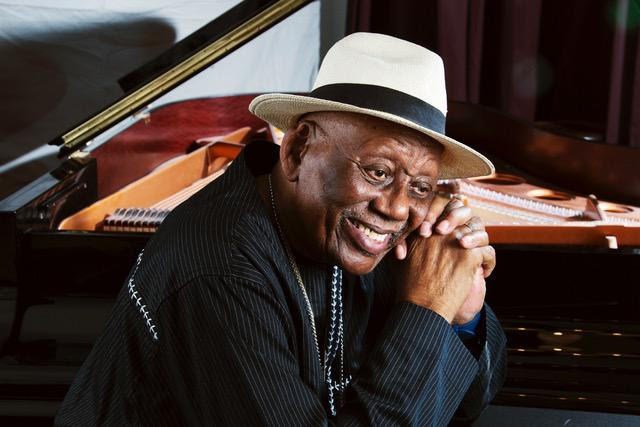Acclaimed jazz pianist Randy Weston has passed at the age of 92 at his Brooklyn home on Saturday, announced his wife Fatoumata Weston.
Weston has been laying down his distinctive rhythms since his first recording Cole Porter in a Modern Mood in 1954 right up to The African Nubian Suite in 2016.
Weston's passing, who was in good health according to family and friends, came as a surprise.
"I spoke with Randy and Fatou just yesterday afternoon, and he seemed the picture of health as we discussed plans for travel and performances across the US, the Caribbean and Africa," said the pianist's long-time attorney Gail Boyd on Saturday. "His sudden death is another reminder that we all need to live life to the fullest, and Randy did just that, bringing love and joy to his family, friends and fans."
In his 65-year recording career, Weston drew connections between the jazz and blues that surrounded him while growing up in Brooklyn and the music of Africa, his ancestral homeland.
Randy Weston was born in Brooklyn on April 6, 1926, to a Panamanian father and a mother originally from Virginia. Unlike many African Americans of his generation who acknowledged little connection between themselves and the mother continent, Weston proudly proclaimed himself an African from an early age, thanks largely to the influence of his father, Frank Edward Weston.
"I was always reading and imagining what it was like in Africa before it was invaded," said Weston. "You had African empires—Egypt, Nubia, Songhai empire of Mali, Ghana—and the magnificent architecture and the music. It's mind-blowing. You don't hear about it in school. You don't see it in the movies, but I've been blessed to live on the continent. I've been to 18 countries on the continent. I always look for the oldest people I can find. I want to hear the oldest music I can listen to. We did that growing up in Brooklyn. As kids, we always did that with the old people. They would tell us all these stories."
A graduate of the Boys High School in Bedford Stuyvesant, Weston took classical piano lessons as a child and enjoyed jazz keyboard greats Count Basie, Nat "King" Cole, Art Tatum and especially Duke Ellington. After serving in the U.S. Army during World War II, he went to work in his father's Caribbean- style restaurant Trios, which became a frequent hangout for Louis Armstrong, Dizzy Gillespie, Ella Fitzgerald and Igor Stravinsky, among others.
Coleman Hawkins, Weston's tenor saxophone hero, introduced him to then little-known pianist Thelonious Monk, who became his friend, mentor and major influence --just as Weston later became to many other musicians.
Africa became the theme of numerous future Weston albums, many with arrangements by Melba Liston. They include Uhuru Africa (1960), Highlife (1963), African Cookbook (1969) and Blue Moses (1972). He first visited Africa in 1961 as a part of The American Society of African Culture. He traveled throughout the continent in 1967 for the U.S State Department and settled in Tangiers, Morocco, where he remained for five years and operated a venue called the African Rhythms Club.
The African Nubian Suite, would become Weston's 50th and final album, magnificent manifestation of his life-long quest.
Weston held honorary doctorates of music from Colby College, Brooklyn College and the New England Conservatory of Music. He served as artist-in-residence at New York University, the New School and Medgar Evers College. In 2010, Duke University Press published African Rhythms: The Autobiography of Randy Weston. His decades of work are archived at Harvard University.
Until his death, Weston continued to reside in Brooklyn with his Fatoumata. He had four children, Cheryl, Pamela, Azzedin (deceased) and Kim; seven grandchildren; six great-grandchildren; and one great-great-grandchild.




